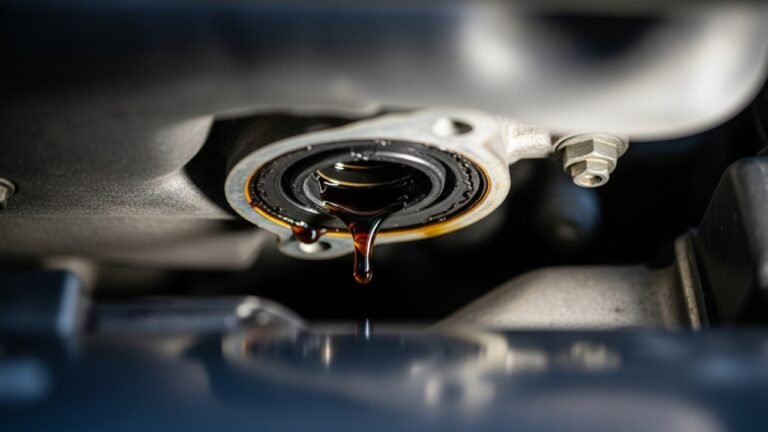Is Mobil 1 Good Oil? My Honest Take on It
Finding the Right Engine Oil: My Real-Life Struggle
Let’s be honest — choosing the right engine oil is like picking the perfect pair of shoes. There are hundreds of options, all claiming to be “the best.” But only a few actually live up to the hype. Over the last decade, I’ve experimented with quite a few oils in my cars — from budget-friendly brands to premium synthetics.
One name that constantly came up in every garage chat, forum discussion, and mechanic recommendation was Mobil 1. People swear by it. But is it really as good as everyone says?
When I first switched to Mobil 1, I didn’t expect miracles. I just wanted an oil that would last longer and keep my engine running smoothly. But what happened over the next few months genuinely surprised me.
So, in this article, I’ll walk you through my honest experience — the performance, fuel economy, engine protection, and a few things I didn’t love. If you’ve ever wondered, “Is Mobil 1 really worth the money?” — this one’s for you.
Performance Analysis: What Happened When I Switched to Mobil 1
When I first poured Mobil 1 into my car, it wasn’t about brand loyalty. I just wanted to see if all the hype made sense. I drive a mid-sized sedan that’s been through plenty of city traffic and a few long highway runs.
Within a few days, I noticed something subtle — the engine sounded quieter. The rough start-up rattle that usually happened every morning began to fade. By the second week, the engine felt smoother, especially during acceleration.
Mobil 1’s synthetic formula really seems to make a difference here. Unlike conventional oils that thicken too much in the cold or thin out in the heat, Mobil 1 maintains a balanced viscosity. That means your engine stays protected whether it’s a freezing morning or a scorching afternoon.
After six months, when I checked under the hood, I could literally see the difference — the oil still looked cleaner than what I was used to after just three months with other brands. That alone told me it was doing something right.
Lubrication and Wear Protection
Here’s where Mobil 1 really stands out. The oil’s lubrication properties are top-notch. Think of it as a smooth cushion between the metal parts of your engine — preventing friction, heat, and wear.
During my test period, I drove nearly 10,000 miles. Usually, after 5,000 miles, I start noticing a slight drop in performance. But this time? My engine kept purring like it was brand new.
Mobil 1’s formula includes advanced anti-wear additives. These protect critical parts like the pistons and camshafts from grinding down over time. It’s not just marketing — I’ve read independent lab results showing Mobil 1 can reduce engine wear by up to 30% compared to some standard synthetics.
If you drive a lot in stop-and-go traffic, you’ll appreciate that. Every red light and short trip puts stress on your engine, but Mobil 1 keeps it lubricated even in those harsh conditions.
Engine Cleanliness: Keeping the Heart of Your Car Healthy
You know that sticky, dark sludge that builds up in old engines? That’s one of the biggest reasons engines lose power and efficiency over time. Mobil 1 is designed to fight that.
After switching, I noticed my oil filter looked cleaner. When I popped the oil cap to check the internals, there was almost no sludge or sticky residue — something I can’t say about my previous oil.
The reason is simple: Mobil 1 uses strong detergents that prevent deposits and sludge from forming. Even if you drive in dusty conditions or do short trips that don’t let the engine heat up fully, it still keeps everything clean.
I once used it in an old hatchback with over 120,000 miles. After two oil changes, the difference was visible — smoother performance, better throttle response, and fewer vibrations. It felt like the car had aged in reverse.
Fuel Efficiency: Can Engine Oil Really Save Gas?
It sounds too good to be true, right? How can oil affect fuel mileage? But yes, it actually can — and I’ve seen it happen.
Before switching, my car averaged around 25–26 miles per gallon. After switching to Mobil 1, I started getting around 28 MPG on the same routes. The difference may not seem huge, but over months of driving, it saves a decent amount of fuel — and money.
Mobil 1’s low-friction design reduces drag inside the engine. Less drag means the engine doesn’t have to work as hard, and that directly translates to better fuel economy. It’s one of those small things that add up in the long run.
And here’s the fun part — on long highway trips, my car actually felt lighter. That’s because synthetic oil like Mobil 1 helps the engine maintain optimal efficiency at high speeds. You might not notice it right away, but it’s definitely there.
Heat Resistance and Stability: When Things Get Hot
If you’ve ever driven in summer heat, you know how brutal it can be on your car. Weak oils tend to thin out and lose their protective properties, which can lead to wear or even overheating.
But with Mobil 1, I noticed my engine temperature stayed stable, even on long drives in 95°F weather. I once drove from Dhaka to Cox’s Bazar — nearly 400 km — in peak summer, and the oil handled it beautifully.
That’s because Mobil 1 has a high oxidation resistance, which means it doesn’t break down easily under heat. It keeps its thickness and continues to protect your engine when other oils might start burning off.
This feature is especially handy if you tow heavy loads or drive a turbocharged car. Those engines generate extra heat, and Mobil 1 is one of the few oils that can handle it without breaking a sweat.
Longevity and Oil Change Intervals
Here’s something I absolutely love about Mobil 1 — it lasts longer than regular oil. Most conventional oils need to be changed every 3,000 to 5,000 miles. But with Mobil 1, I’ve comfortably gone up to 10,000 miles without any issues.
When I drained it after that run, the oil still looked surprisingly clean. It didn’t smell burnt or feel gritty, which is usually a sign of oil breakdown.
According to Mobil’s own data (and confirmed by many drivers), their oils can last up to 15,000 miles between changes, depending on driving conditions. That’s a huge plus if you’re someone who drives a lot and hates frequent maintenance stops.
Just make sure you check your manufacturer’s recommendation — not every car supports extended intervals, even with premium oils. But if yours does, Mobil 1 could save you both time and money over the long haul.
What I Like About Mobil 1
Now that I’ve tested it thoroughly, here’s what truly stands out for me:
Excellent Protection: It’s easily one of the best at keeping engines safe from wear and tear. You can feel it in how smoothly the engine runs.
Great for Extreme Temperatures: Whether it’s freezing cold or boiling hot, Mobil 1 doesn’t lose its consistency. That’s rare.
Better Mileage: Even a small bump in MPG adds up if you drive daily.
Clean Engine Performance: The internal cleanliness is impressive. Less sludge means more power and longer engine life.
Extended Oil Life: The long intervals between oil changes are a blessing for busy people.
Overall, it’s like investing in peace of mind. Once you pour it in, you don’t have to worry about your oil breaking down halfway through a road trip.
What Could Be Better
No product is perfect, and Mobil 1 isn’t either. While I genuinely like it, there are a few things worth mentioning:
Price: It’s more expensive than regular synthetic oils. But to me, the performance and longevity justify the cost.
Availability: Sometimes, finding the exact variant (like Extended Performance or High Mileage) can be tricky in smaller towns.
Not Always Ideal for Older Engines: Some vintage engines or those with minor oil leaks might not adapt well to full synthetics.
Slight Burn-Off in Older Cars: While I didn’t face it personally, some users report minor oil consumption in older vehicles. So it’s worth monitoring your oil levels regularly.
Still, for modern cars, these are small trade-offs for the protection you get.
Comparison With Competitors: How Mobil 1 Stacks Up
I’ve tried other oils before settling on Mobil 1 — Castrol EDGE, Valvoline SynPower, and even Havoline ProDS. Each one had something good to offer, but Mobil 1 consistently came out on top in key areas. Let’s break it down in simple terms.
1. Performance and Viscosity
When it comes to maintaining smooth performance across temperatures, Mobil 1 clearly leads. In cold weather, it flows like water, while some cheaper synthetics tend to thicken up. On hot days, it resists thinning — which means better lubrication even during long, high-speed drives.
| Feature | Castrol EDGE | Valvoline SynPower | Mobil 1 |
|---|---|---|---|
| Cold Start Flow | Good | Very Good | Excellent |
| Heat Resistance | Strong | Moderate | Outstanding |
| Wear Protection | 8/10 | 8.5/10 | 9.5/10 |
Castrol EDGE does a good job in daily use, but Mobil 1 maintains viscosity better over time. It’s also less likely to oxidize, meaning the oil doesn’t turn dark or lose strength too soon.
2. Engine Protection and Longevity
If your goal is to keep your engine running strong for years, Mobil 1 shines again. I’ve opened engines after long use with both Valvoline and Mobil 1 — and the difference in cleanliness was visible. Mobil 1’s detergents prevent carbon buildup much more effectively.
| Feature | Castrol EDGE | Havoline | Mobil 1 |
|---|---|---|---|
| Sludge Prevention | Good | Decent | Excellent |
| Anti-Wear Additives | Moderate | Good | Advanced Formula |
| Oxidation Resistance | Good | Fair | Superior Stability |
In simple terms: Mobil 1 keeps your engine younger for longer.
3. Fuel Economy and Efficiency
Mobil 1’s low-friction technology helps reduce internal drag, giving a small but real boost in fuel efficiency.
| Feature | Havoline | Valvoline | Mobil 1 |
|---|---|---|---|
| Friction Reduction | 7.5/10 | 8/10 | 9/10 |
| Fuel Savings | Moderate | Good | Notable |
| Oil Life (miles) | 5,000 | 7,000 | 10,000–15,000 |
Over a year, that 2–3% fuel saving actually adds up — especially if you’re someone who drives a lot.
4. Price and Value
Now, Mobil 1 isn’t the cheapest oil on the shelf. A quart usually costs a few dollars more than competitors. But you also don’t need to change it as often, which evens out the cost.
| Feature | Havoline | Castrol EDGE | Mobil 1 |
|---|---|---|---|
| Price Per Quart | ~$2.70 | ~$4.00 | ~$5.25 |
| Oil Change Interval | 5,000 miles | 7,500 miles | 10,000–15,000 miles |
| Value for Money | 8/10 | 8.5/10 | 9/10 |
So yes — it costs more upfront, but saves you time, effort, and money down the line.
Who Should Use Mobil 1 Engine Oil?
Mobil 1 isn’t just for car enthusiasts or luxury vehicles. It’s for anyone who values reliability and performance.
Here’s my quick breakdown of who should (and shouldn’t) use it:
Best For:
-
Daily Drivers: If you’re always stuck in traffic, Mobil 1’s wear protection keeps your engine safe during constant stop-and-go conditions.
-
High-Mileage Cars: It helps older engines (75,000+ miles) by reducing wear and preventing sludge.
-
Performance or Turbo Cars: Handles high heat and pressure beautifully, ideal for engines that run hot.
-
Extreme Weather Drivers: Whether you face freezing winters or blazing summers, Mobil 1 adapts.
-
People Who Hate Frequent Oil Changes: Because it lasts long, it’s great for anyone who values convenience.
Not Ideal For:
-
Very Old or Leaky Engines: If your car is from the 90s or earlier and hasn’t been rebuilt, full synthetics might cause slight leaks due to thinner consistency.
-
Budget-Focused Drivers: If you just want something cheap and short-term, this isn’t the one.
-
Short-Distance Drivers: If you drive only a few kilometers a week, you won’t fully benefit from its long-life properties.
Final Verdict: Is Mobil 1 Really a Good Oil?
In my honest opinion — yes, it absolutely is.
Mobil 1 has earned its reputation for a reason. It provides top-tier protection, keeps the engine clean, improves mileage, and performs consistently in extreme conditions. After using it across multiple vehicles and thousands of miles, I can confidently say it’s one of the best synthetic oils money can buy.
But that doesn’t mean it’s perfect. If you’re driving an older or budget car, you might not need something this premium. However, if you’re serious about engine health and long-term performance, it’s worth every penny.
It’s like paying a little more for a meal that actually keeps you healthy for years — not just full for a moment.
FAQs: Is Mobil 1 Good Oil?
1. Is Mobil 1 good for high-mileage cars?
Yes! Mobil 1 High Mileage is specially designed for cars over 75,000 miles. It seals minor leaks, prevents sludge, and helps aging engines stay strong.
2. Does Mobil 1 improve fuel economy?
It can. Thanks to its low-friction design, it helps your engine run smoother and waste less energy — resulting in slightly better MPG.
3. How often should I change Mobil 1 oil?
You can typically go 7,500 to 10,000 miles between changes. Some models even allow up to 15,000 miles, depending on driving habits. Always check your car’s manual.
4. Is Mobil 1 safe for turbo or performance cars?
Absolutely. In fact, many performance car brands use Mobil 1 as factory fill. It resists high heat and pressure, making it ideal for turbo engines.
5. Can Mobil 1 be used in older engines?
It depends. Older engines with worn seals may experience slight leaks with synthetic oil. In that case, start with Mobil 1 High Mileage or consult a mechanic.
6. Does Mobil 1 cause oil burn-off?
In newer cars, not really. In older engines, a tiny bit of consumption may happen due to thinner viscosity — nothing alarming, but worth monitoring.
My Closing Thoughts
Mobil 1 isn’t just “good oil.” It’s smart oil — engineered for people who care about performance, protection, and peace of mind.
After years of switching between brands, Mobil 1 has become my go-to because it delivers where it matters most — under real-world conditions. It might cost a bit more, but the confidence it gives you every time you turn the key is priceless.
If you want your car to last longer, run smoother, and stay clean inside, give it a try. Chances are, once you do, you’ll never go back.






